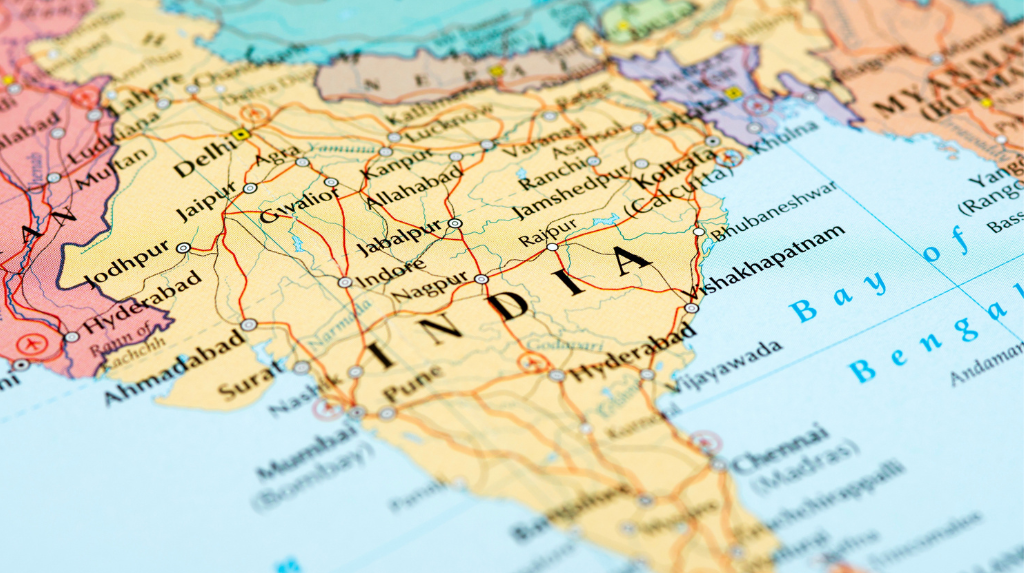This comprehensive guide aims to walk Nigerian students through the intricacies of the Indian student visa application process, ensuring a smooth and successful transition to the Indian educational landscape.
Understanding the Indian Student Visa
Before delving into the application process, it is crucial to understand the type of visa required for studying in India. The Indian Student Visa (also known as the “X Visa”) is specifically designed for foreign nationals intending to pursue academic courses in India. It is essential to apply for this visa well in advance of the planned departure date to allow for processing time.
Key Documents Required
Acceptance Letter from an Indian Educational Institution:
Begin by securing admission to a recognized Indian educational institution. Once accepted, the institution will provide an official acceptance letter specifying the course details and duration.
Valid Passport:
Ensure that your passport is valid for at least six months beyond the intended period of stay in India. If needed, renew your passport before initiating the visa application process.
Completed Visa Application Form:
Obtain and fill out the Indian Student Visa application form available on the official website of the Indian Visa Online Portal (https://indianvisaonline.gov.in/). Provide accurate information, and double-check for any errors before submission.
Passport-Sized Photographs:
Attach recent passport-sized photographs to the visa application form. Follow the specifications outlined by the Indian Embassy or Consulate.
Proof of Financial Means:
Showcase your ability to fund your education and stay in India. Provide bank statements, financial affidavits, or sponsorship letters from parents or guardians as evidence of financial stability.
Proof of Accommodation:
Furnish details of your intended accommodation in India. This could be a university hostel confirmation or a rental agreement for private accommodation.
Academic Certificates and Transcripts:
Include copies of your academic certificates, transcripts, and any other relevant educational documents. These will validate your academic qualifications and eligibility for the chosen course.
Medical Fitness Certificate:
Submit a medical fitness certificate from a recognized medical professional to attest to your overall health and fitness for travel and study.
Travel Itinerary:
Provide a tentative travel itinerary, including flight details and dates of entry and exit from India.
Visa Fee Receipt:
Pay the applicable visa fee and attach the receipt to your application. Visa fees may vary, so it is advisable to check the current fee structure on the official website.
Application Process
Online Application Submission:
Access the Indian Visa Online Portal and complete the online visa application form. Ensure all information is accurate, and upload the required documents as per the specifications.
Appointment Scheduling:
Schedule an appointment at the nearest Indian Embassy or Consulate for visa submission. Some locations may offer walk-in services, while others may require prior appointment scheduling through the online portal.
Document Verification:
Attend the visa submission appointment with all the required documents in both original and photocopy form. The embassy or consulate officials will verify your documents during this process.
Biometric Data Submission:
Provide biometric data, including fingerprints, as part of the visa application process. This step is usually done at the embassy or consulate on the day of document submission.
Track Application Status:
Utilize the application tracking feature on the official website to monitor the status of your visa application. Be patient, as processing times may vary.
Visa Collection:
Once your visa is approved, collect your passport from the embassy or consulate. Ensure all details on the visa sticker are accurate before leaving the premises.
Important Tips and Considerations
Apply Early:
Commence the visa application process well in advance to avoid any last-minute complications. Processing times can vary, and applying early provides a buffer for unforeseen delays.
Thoroughly Review Documentation:
Double-check all documentation to ensure accuracy and completeness. Any discrepancies or missing documents can lead to delays or rejection of the visa application.
Financial Planning:
Demonstrate a clear financial plan for the entire duration of your studies. This includes tuition fees, accommodation, living expenses, and any other foreseeable costs.
Stay Informed:
Stay updated on any changes to the visa application process or requirements. Regularly check the official website or contact the Indian Embassy for the latest information.
Local Support:
Seek guidance from current or former students who have undergone the Indian student visa process. They can provide valuable insights and tips for a successful application.
Cultural Sensitivity:
Familiarize yourself with Indian customs, traditions, and social norms. This cultural awareness will contribute to a smoother transition and integration into the academic and social aspects of Indian life.
Embarking on a journey to pursue higher education in India is an exciting and enriching experience for Nigerian students. Navigating the Indian student visa application process may seem intricate, but with careful planning, attention to detail, and adherence to the guidelines outlined in this comprehensive guide, the process becomes manageable.
Do you need help with a Student Visa to India?
Contact our team of skilled immigration lawyers to discuss your visa and immigration needs.
Call us on +234 812 5505 986 or WhatsApp us at +234 818 1547 085 for immediate assistance with your situation. We are available to assist you in person, over the phone, or online





